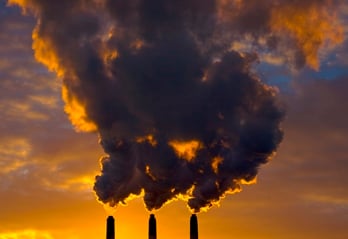

New Zealand must cut its methane emissions by 10-22% from 2016 levels if it wants to meet its Paris Agreement climate change commitments, according to new research prepared for the Parliamentary Commissioner for the Environment.
Commissioner Simon Upton says New Zealand is “well ahead of most other countries” when it comes to treating methane emissions, and with legislation work underway for the government’s Zero Carbon Bill, New Zealand’s methods are likely to be closely scrutinised by the rest of the world. Emphasis has been placed on treating livestock methane, which accounts for 85% of New Zealand’s total emissions.
KPMG’s latest outlook survey revealed that climate change is one of the biggest concerns faced by New Zealand’s CEOs as business confidence continues to stagnate, and its massive potential impact on the insurance industry is at the forefront of risk planning and mitigation strategies.
New Zealand insurers paid out a total of $211.4 million worth of insurance claims in the first half of 2018, and will almost certainly break last year’s annual record of $243 million by the end of the year. The Insurance Council of New Zealand (ICNZ) has stated that the insurance sector faces significant risks going forward, and has encouraged the industry to give strong thought to all aspects of climate change preparation.
The government has committed to cutting emissions of long-lived gasses such as carbon dioxide to ‘net zero’ by 2050, and has welcomed the Commissioner’s research.
“This is a timely and useful contribution to the ongoing process of developing New Zealand’s response to climate change,” said Eugenie Sage, acting minister for climate change.
“The report shows that New Zealand’s methane emissions would need to reduce by 10-22% below 2016 levels by 2050, with further reductions between 20-27% by 2100, if we want to ensure methane emissions don’t contribute to additional global warming. This is seen as achievable, given that methane output per unit of production has been in decline by about 1% per year for the last few decades, and given some leaders in the sector believe they can reduce methane output by as much as 30% using existing technology and best practice.”
